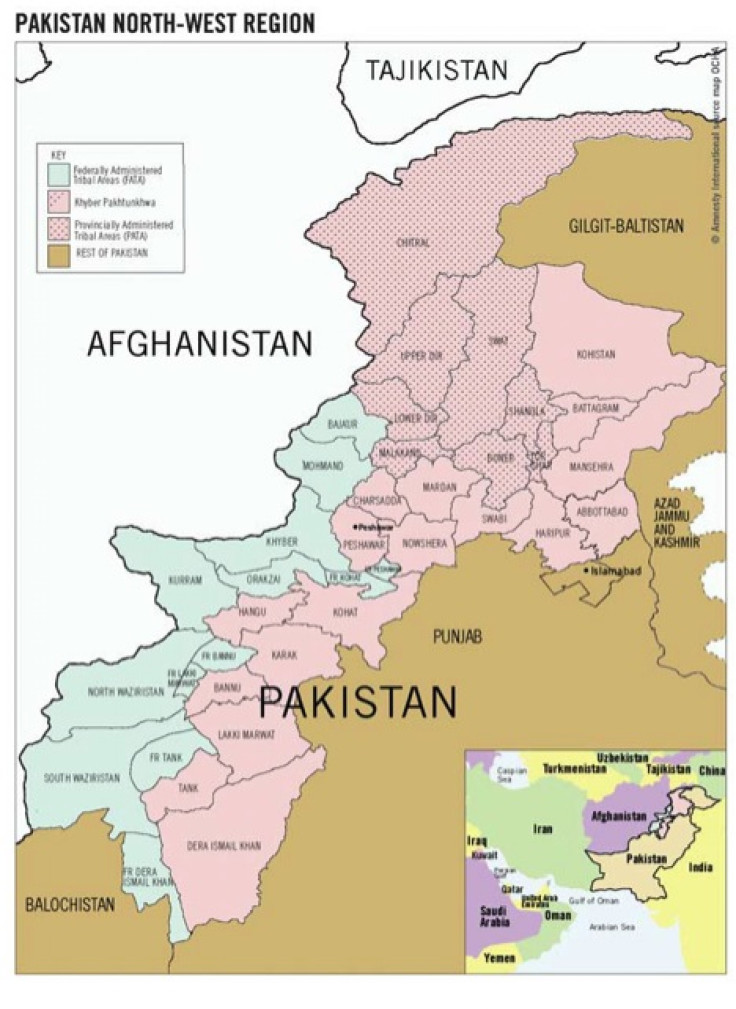Pakistani Civilians At Mercy Of Military And Taliban In Tribal Areas

Both Pakistan’s armed forces and the Taliban are committing human rights abuses against the civilian population in the country’s northwestern tribal areas, according to a new report from Amnesty International.
The London-based human rights group’s report claims that the Pakistani military, in its offensive against the Taliban, has detained thousands of men and boys in the region, where they are held in undisclosed locations without due process, subjected to abusive treatment, including torture, and in some cases have disappeared or died in custody.
“After a decade of violence, strife and conflict, tribal communities are still being subjected to attack, abduction and intimidation, rather than being protected,” Polly Truscott, Amnesty International’s Deputy Asia Pacific Director, said in a statement.
“By enabling the Armed Forces to commit abuses unchecked, the Pakistani authorities have given them free rein to carry out torture and enforced disappearance.”
Amnesty said that human rights “safeguards” in the Pakistani constitution are not applied in the tribal areas, and the military is “using new broad security laws and a harsh colonial-era penal system to commit violations with impunity.”
A spokesman for the Pakistani military denounced the report, saying it is “biased” and “based on fabricated stories twisted to serve an agenda,” according to the AFP news agency.
Amnesty said it its report is “based on interviews with scores of victims of human rights abuses, witnesses, relatives, lawyers and representatives of the Pakistani authorities and armed groups in the region.”
The report also takes aim at the Taliban and other militant groups over similar claims of abuses and attacks against civilians, as well as against the Pakistani military.
“The Taliban have time and again shown complete disregard for civilian lives by these indiscriminate and deliberate attacks,” Truscott said. “Tribal communities live in abject fear of deadly reprisals on the merest suspicion of supporting the Pakistan state.”
Amnesty said that civilians in the tribal areas are caught between the military and the Taliban and has demanded that Islamabad take action to hold its side accountable.
“The government must immediately reform the deeply flawed legal system in the Tribal Areas that perpetuates the cycle of violence,” said Truscott.
The report draws attention to the application of the Frontier Crimes Regulation in the region, a set of laws that date back to the 19th century rule of the British Raj and deny detainees the right to appeal their detention, the right to legal representation and the right to present evidence in their defense.
It also mentions the 2011 Actions in Aid of Civil Power Regulations, or AACPR, which it says granted the armed forces “further sweeping powers of arrest and detention.”
“The AACPR has to be repealed and the jurisdiction of the courts and parliament extended to the Tribal Areas.”
Amnesty said that the region’s “legal wilderness” will continue to fuel a “human rights crisis” until the government makes reforms.
© Copyright IBTimes 2024. All rights reserved.











